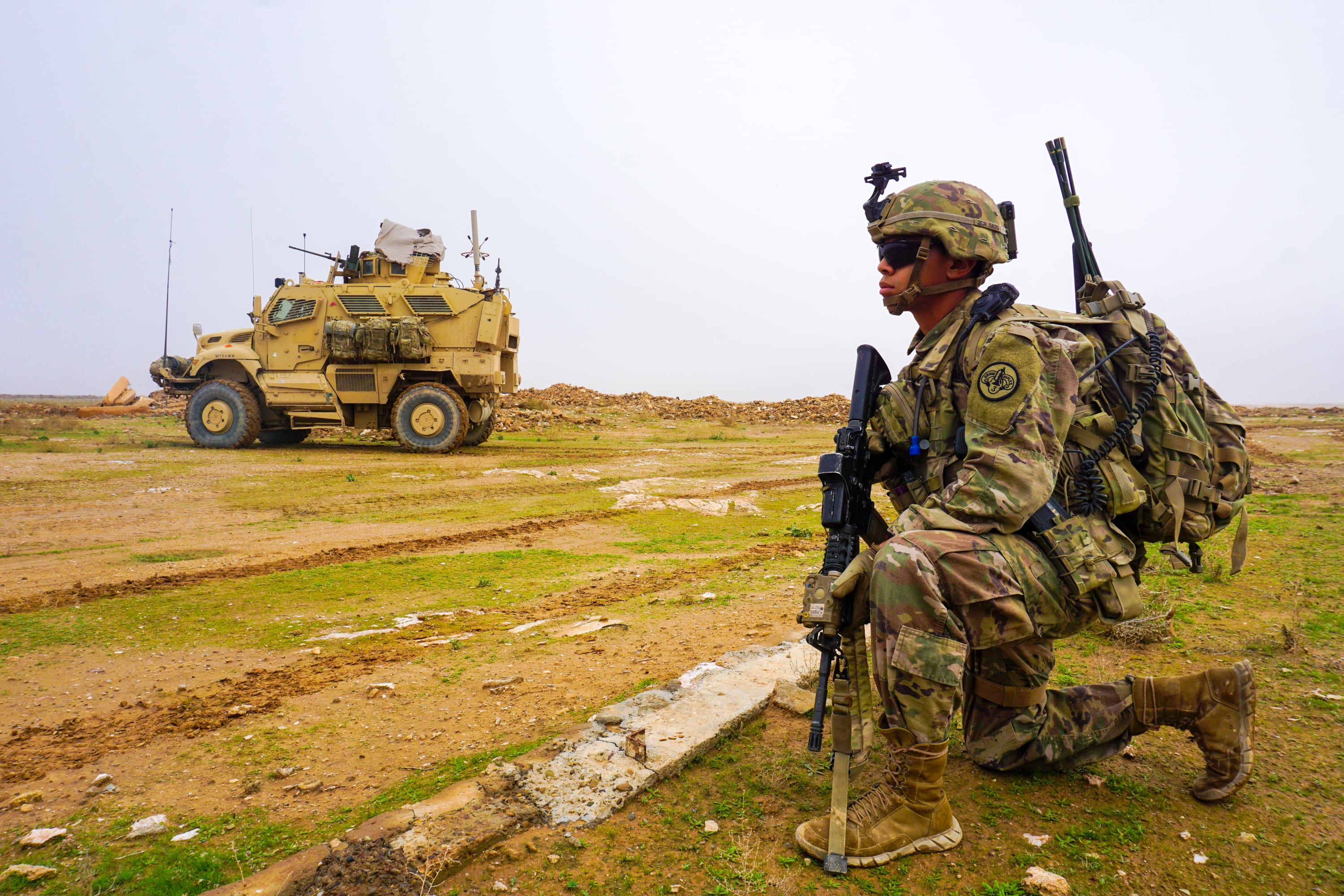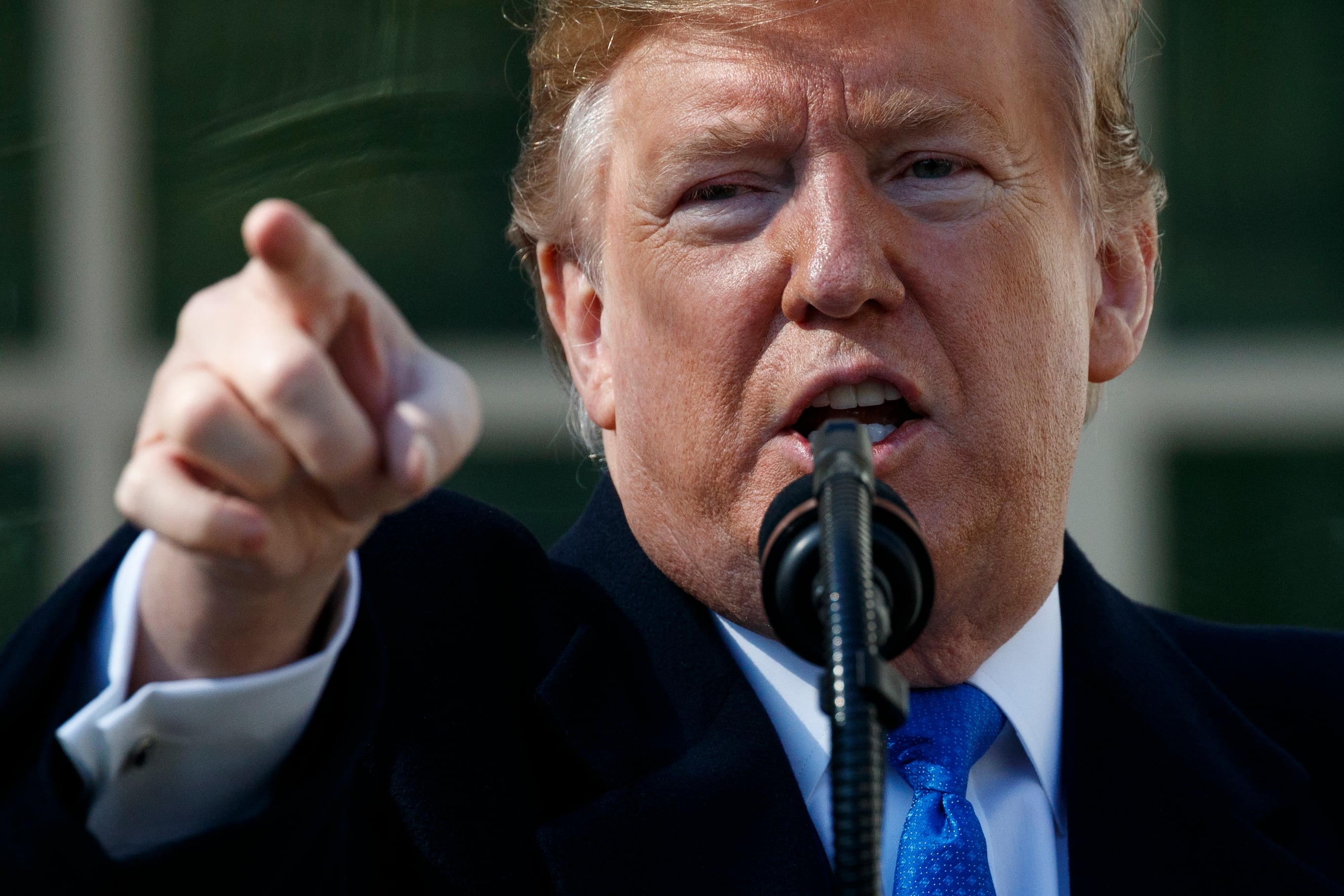MUNICH — President Donald Trump threatened Sunday on Twitter to release more than 800 Islamic State fighters captured in Syria if Europe does not “step up” and put them on trial.
Trump’s message to the U.K., France, Germany is the latest instance of American officials, some meeting with world leaders overseas, emphasizing the Islamic State’s global reach as it seeks allies to stabilize Syria ahead of the planned withdrawal of U.S. troops.
Trump tweeted: “The United States is asking Britain, France, Germany and other European allies to take back over 800 Isis fighters that we captured in Syria and put them on trial. The Caliphate is ready to fall. The alternative is not a good one in that we will be forced to release them.
“The U.S. does not want to watch as these ISIS fighters permeate Europe, which is where they are expected to go. We do so much, and spend so much - Time for others to step up and do the job that they are so capable of doing. We are pulling back after 100% Caliphate victory!”
While the nationality of the fighters being held is unclear, tens of thousands of foreign fighters from dozens of countries flooded into Iraq and Syria, many from western nations, at the Islamic State’s peak.
RELATED

Trump’s message came as diplomats gathered at the 2019 Munich Security Conference, where his surrogates argued the fall of the group’s physical caliphate would not end the ideological and terrorist threat and that allies must step up to solidify security gains in the region.
In December, Trump called for a complete withdrawal of some 2,000 U.S. forces in Syria. And on Saturday, Vice President Mike Pence told the conference the U.S. still plans to wind down the mission in Syria.
In public remarks and behind the scenes, Acting Defense Secretary Patrick Shanahan sought to enlist allies into what he framed as an evolving fight against ISIS in the Middle East and beyond. Sen. Lindsey Graham, a Trump ally, at one point in his public remarks listed nearly two dozen deadly ISIS-inspired attacks from around the globe since 2014.
“Does it matter what happens over there? Hell yeah, it matters,” Graham, R-S.C., said Friday, of Syria. “All of us have suffered from letting the caliphate be created. Now it is destroyed. What follows?”
Allies have been alarmed by the Trump administration’s decision to withdraw U.S. troops. The foreign minister of France, one of America’s key allies in the fight, Jean-Yves Le Drian, told Graham on Friday the U.S. policy in the region appeared conflicted.
“How can one be very firm against Iran and at the same time abandon northeast Syria, when one knows that in the end it favors Iranian activities in the region?” Le Drian said. “It’s a mystery to me.”
On Sunday, the U.S. envoy to Syria, Jim Jeffey, was asked to respond to Le Drian’s comments and said U.S. policy goals have been consistent: The enduring defeat of the Islamic State, a U.N.-brokered political solution in Syria, the removal of foreign forces.
The fight against the Islamic State in Syria is virtually won, and “an orderly step-by-step withdrawal” of U.S. troops will follow, Jeffrey said. For now, he said: “Our goal is to freeze the conflict to where it has been since the summer."
Joe Gould was the senior Pentagon reporter for Defense News, covering the intersection of national security policy, politics and the defense industry. He had previously served as Congress reporter.




